Sir Georg Solti in 1987
Yousuf Karsh
As the summer of 1997 drew to a close, the Chicago Symphony Orchestra Association was putting the finishing touches on Symphony Center, culminating a three-year, $120 million project. To celebrate the renovation of Orchestra Hall and facilities expansion, a three-week festival was planned that included gala concerts and the first Day of Music, twenty-four hours of free, live performances across all genres in multiple Symphony Center venues.
One of the gala concerts was scheduled for Saturday, October 25, with Music Director Laureate Sir Georg Solti leading the Orchestra in an all-Beethoven program: the Seventh Symphony and the Emperor Piano Concerto with Music Director Daniel Barenboim as soloist. The concert would celebrate not only Solti’s 85th birthday (October 21, 1997) but also his 1,000th concert with the Orchestra. In November, he was scheduled to return for two weeks of subscription concerts, leading Ives’s Decoration Day, Schumann’s Symphony no. 3, and Mendelssohn’s Symphony no. 3, along with a full program of choruses from Wagner’s operas with the Chicago Symphony Chorus, to be recorded live by London.
Over the Labor Day holiday weekend, the world had been rocked with the news of the tragic death of Diana, Princess of Wales, on Sunday, August 31. Barely a week later on the morning of September 5 (the day before Diana’s funeral), news outlets reported the death of Mother Teresa in Calcutta, India. And late that same evening, we heard the unthinkable. While on holiday with his family in Antibes, France, Sir Georg Solti had taken ill and died peacefully in his sleep.
"I had just returned hours earlier from Europe, where I was working with Daniel Barenboim on Solti’s 85th birthday celebration concert," remembered Martha Gilmer, former vice president for artistic planning. After confirming with Charles Kaye, Solti’s longtime assistant, she called Barenboim in Bayreuth, waking him to relay the news.
“I was stunned,” recalled Henry Fogel, then president of the CSO Association. The following morning, senior staff met to determine how to proceed with the plans for the festival, among several other issues. As some of them approached the entrance, “We were very touched because when we came to Orchestra Hall, one person had left a bouquet of flowers at the Michigan Avenue entrance.”
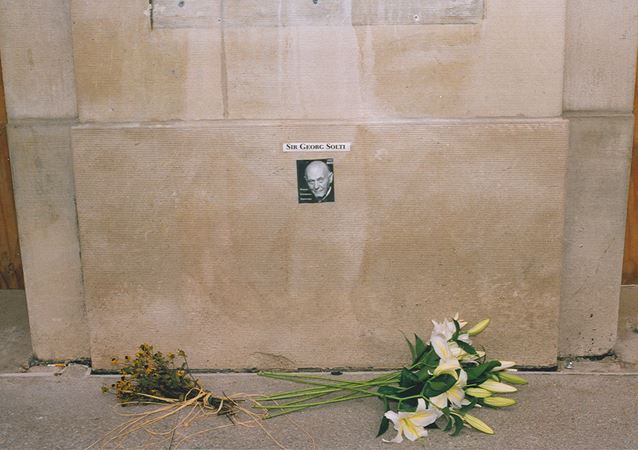
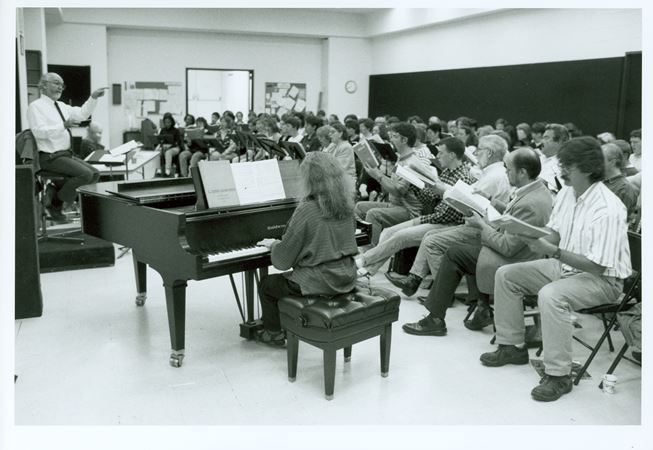
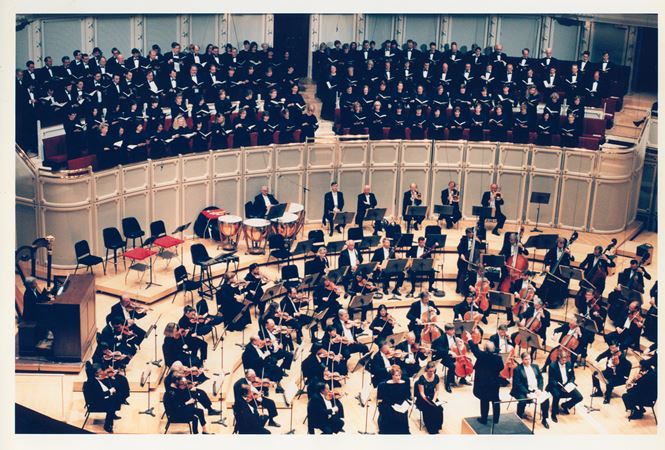
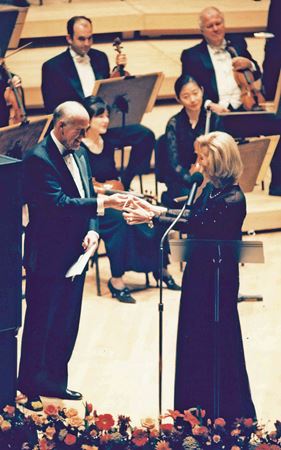
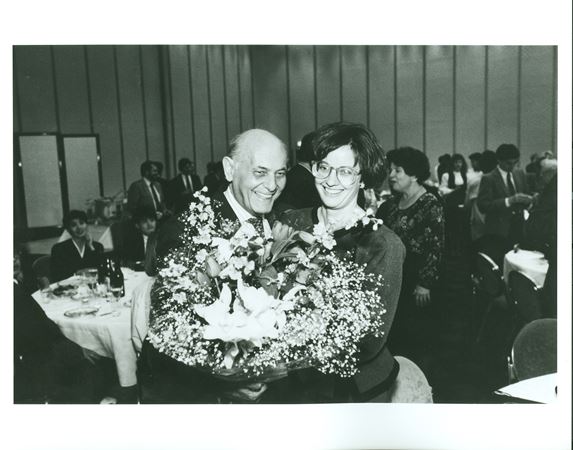
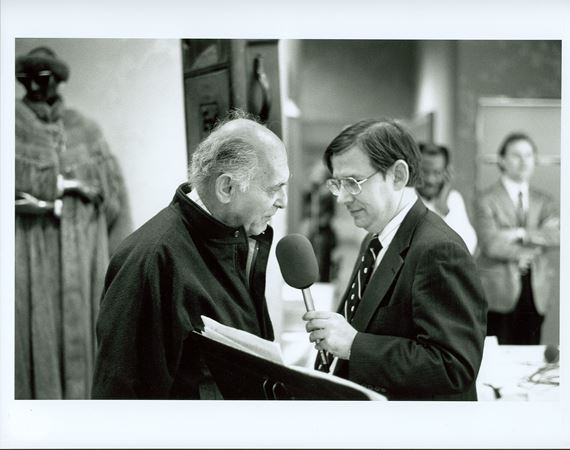
The festival would continue mostly as planned. The Symphony Center inaugural gala opened with Barenboim leading Nimrod from Elgar’s Enigma Variations, performed in Solti’s memory. A special, free memorial concert was added on October 22 with Barenboim leading Wagner’s Prelude to Die Meistersinger von Nürnberg and the Prelude and Liebestod from Tristan and Isolde, followed by Mozart’s Requiem with Emily Magee, Anna Larsson, John Aler, René Pape, and the Chicago Symphony Chorus, prepared by Duain Wolfe.
The program for the celebration concert on October 25 changed slightly, and Barenboim led Beethoven’s Third Piano Concerto from the keyboard along with the Seventh Symphony. At the beginning of the concert, Lady Valerie Solti presented Richard L. Thomas (chairman of the CSO Association from 1986 until 1991) with one of Solti’s batons.
A special commemorative program book for the memorial and celebration concerts was prepared, and it included tributes from President Bill Clinton, Illinois governor Jim Edgar, and Chicago mayor Richard M. Daley, along with Solti’s colleagues from all over the world, members of the Orchestra, and administrative staff. (The program book is available here.)
The block of Adams Street between Michigan and Wabash avenues was named honorary Sir Georg Solti Place on October 24, 1997. The following spring (just before the beginning of the fifteenth European tour with concerts in Paris and Berlin), a small contingent of Orchestra family traveled to Budapest for a ceremony on March 28, 1998, in which Solti’s ashes were interred next to the grave of his teacher, Béla Bartók. During the ceremony, Charles Pikler, then–principal viola, performed Ravel’s Kaddish.
Fogel continued, “One thought that I did keep having was how sad it was that Maestro Solti would never see the renovated hall, with which I believe he would have been thrilled.”
“Solti, so vibrant, such energy, such magnetism, such a life force,” added Gilmer. “It was impossible to believe that it ended so quietly and in a place so far away. . . . He was a young 84-year-old and what occurred to all of us is that we had all been robbed of wonderful musical memories that were yet to be made.”
This article also appears here.



